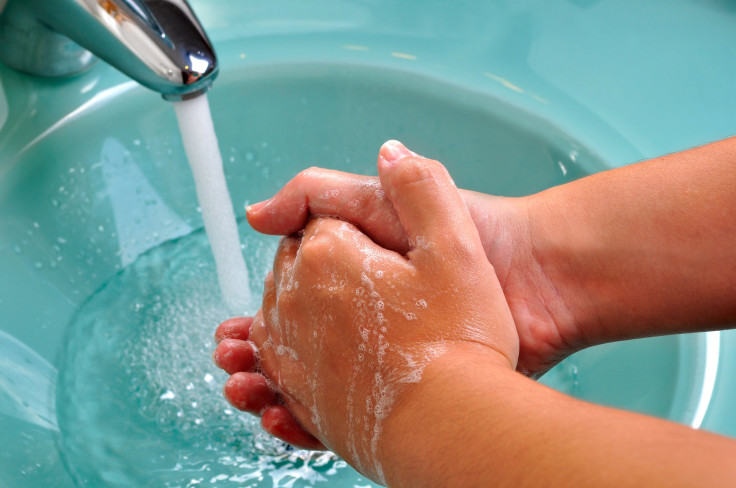Disease-Causing Germs Infest Many Everyday Objects, Including Coffee Lids And The ATM

A city of microbes rises high into the sky neither seen nor heard by humans here in middle space — a Lilliputian settlement on the lid of my coffee cup.
Those million microbes join others throughout the day as I recklessly open doors and press elevator buttons. Barehanded, I pay for my coffee with cold, dirty cash before returning to work. I live dangerously and laugh at the poor bastard fearing the unseen, imaginary threat of disease-causing pathogens.
But maybe the mysophobe has it right? After all, as Joseph Heller wrote in Catch-22, “just because you’re paranoid doesn’t mean they aren’t after you.”
Germ expert Charles Gerba, a microbiologist at the University of Arizona, says frequent hand-washing throughout the day may significantly lower your risk of contracting or spreading infectious disease, a risk many underestimate.
"People do not realize the amount of contamination they are exposed to going to work each day and doing everyday things like filling their gas tank or riding on an escalator," Charles Gerba said in a statement. "This new testing is compelling because it underscores the importance of hand and surface hygiene. Most cold and flu viruses are spread because people touch surfaces in their immediate area and then touch their faces, other objects and other people.”
And although many mysophobes suffer a debilitating anxiety about germs, the basic fear is well-founded. “Washing and drying your hands frequently throughout the day, can help prevent your risk of getting sick or spreading illness around the office,” Gerba said.
With funding from Clorox in 2011, Gerba sent trained hygienists to collect samples from high-traffic areas in Atlanta, Chicago, Dallas, Los Angeles, Miami, and Philadelphia. Swabbed samples from those six cities included high levels of ATP, a cellular energy source indicating the presence of bacteria, viruses, and other microbes. On surfaces from computer keyboards to telephones to gas station pump handles, microbe levels in most places were high enough to cause disease.
As you might expect, objects and surfaces touched by hundreds of human hands per day were most contaminated by possibly pathogenic agents, including 35 percent of vending machines, 40 percent of parking meters, 41 percent of ATMs, 68 percent of mailboxes, and 71 percent of gas station pumps. But more surprisingly, a quarter of all public restroom soap dispensers were contaminated with fecal matter, countervailing the very cleansing effect intended.
Although Gerba stops short of recommending Clorox products, the germ-fighting microbiologist ticks off statistics that would frighten any mysophobe, let alone anyone with a milder case of Obsessive Compulsive Disorder. How often is E. coli found lurking on the handles of the bathroom sink? About 100 percent. And do you eat lunch at your desk at work? Gerba has a name for that: "Bacteria Cafe."
But everything has always been covered in germs, Gerba said. The main problem today is people are just touching things more.



























